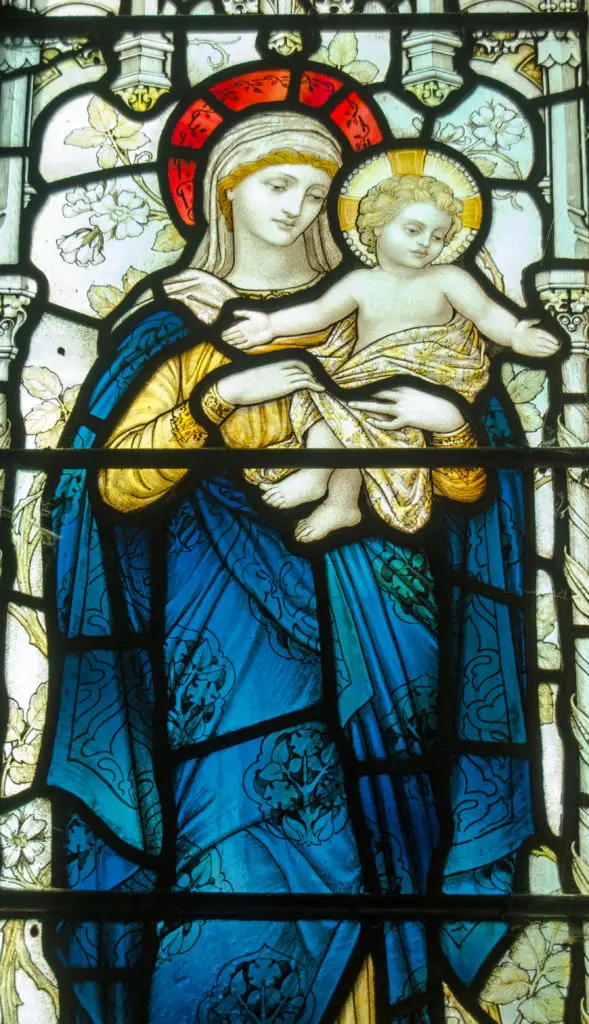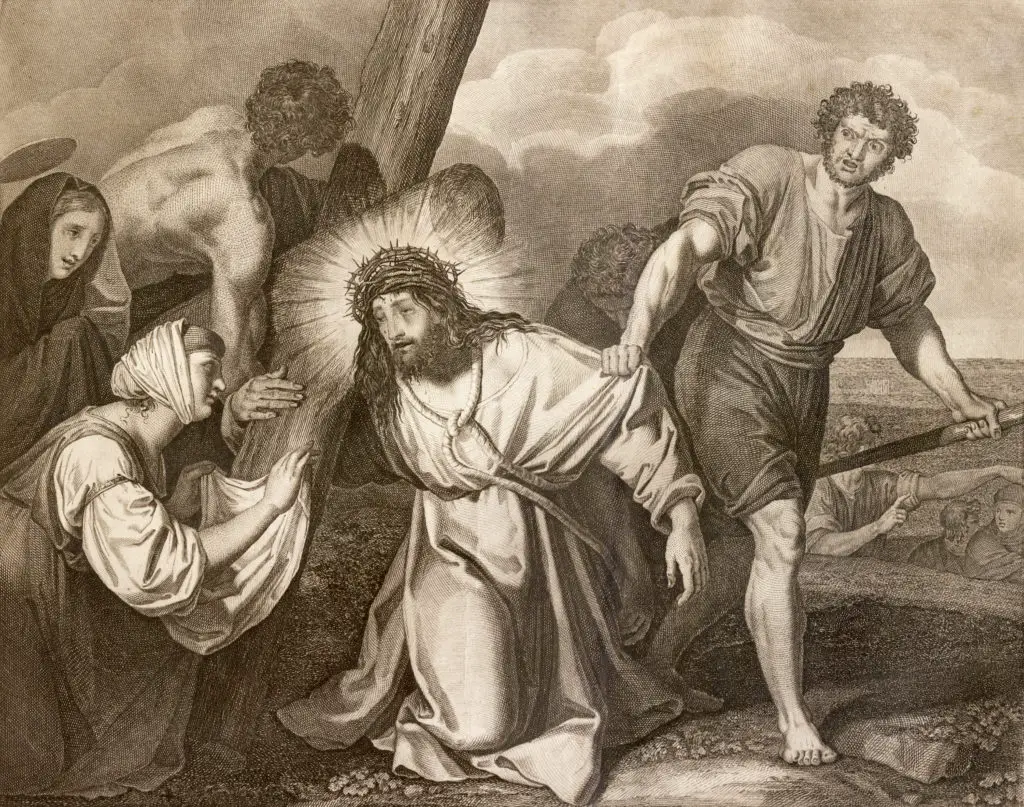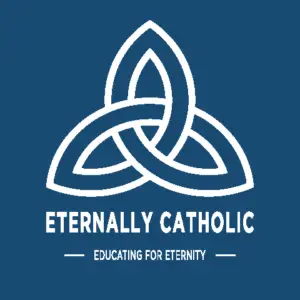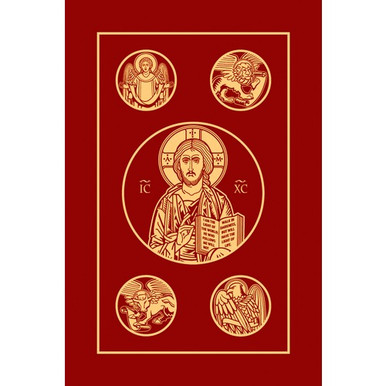This post contains affiliate links.
The Mother of Jesus is highly esteemed by the Catholic Church as the Mother of God. This is not just a title of honour but by virtue of Mary’s role in bringing forth the Son of God, Jesus who is Truly God and Truly Human.
Mary is rightfully known as the ‘Mother of God’ due to the extraordinary events that brough forth the Son of God, Jesus into the world. Whilst Scripture does not clearly state this about Mary, however we can deduce from Scripture that Mary is truly the Mother of God (Theotokos or ‘God-bearer’). The Church declared at the Council of Ephesus (431AD) this statement of faith called a Dogma.
In the fact there are Four Dogmas on Mary including:
- Mother of God (Theotokos);
- Immaculate Conception;
- Perpetual Virgin; and
- Assumption.
Recommended Catholic Bibles, Catholic Resource Website and Outstanding Catholic Research Software:
Recommended Catholic Resource set for your Catholic Book Library and Formation:
What is a Dogma?
A Dogmas is defined amongst Theological Scholars as ‘ a religious truth established by Divine Revelation and defined by the Church’ (Oxford Dictionary of the Catholic Church).
Further,
“.. it is a truth contained in the Word of God, written or unwritten—i.e. in Scripture or tradition—and proposed by the Church for the belief of the faithful. Thus dogma is a revealed truth, since Scripture is inspired by the Holy Ghost (Spirit), while tradition signifies the truths which the Apostles received from Christ and the Holy Spirit, and handed down to the Church” (A Catholic Dictionary)
The word ‘Dogma’ comes from the Greek word δοκεῖν, which means “to seem.” Therefore from the definition

“… the Church has no power to make new dogmas. It is her office to contend for the faith once delivered, and to hand down the sacred deposit which she has received without adding to it or taking from it.
At the same time, the Church may enunciate fully and impose dogmas or articles of faith contained in the Word of God, or at least deduced from principles so contained, but as yet not fully declared and imposed.
Hence with regard to a new definition—such, e.g., as that of Transubstantiation, Christians have a twofold duty. They are obliged to believe, first, that the doctrine so defined is true, and next that it is part of the Christian revelation received by the Apostles.
Again, no Christian is at liberty to refuse assent to any dogma which the Church proposes. …” (A Catholic Dictionary).
Form these definitions in can be concluded that Dogma contains two major elements:
- That the topic at hand must be revealed by God and must have a Scriptural basis, whether directly or indirectly; and
- That the Church, after careful examination and with nothing new added, states that this is a matter of faith that all Catholics must believe and ascent to.
This is what is meant by a Dogma.
What does the Bible say about Mary as the ‘Mother of God’?
Whilst Scripture does not clearly state the ‘Mary is the Mother of God’, however this understanding of Mary can be deduced from Scripture.
In an earlier article on ‘What do Catholics believe about Mary, the Mother of Jesus? An understanding of Who Mary is? Her role and qualities. I would recommend reading this article.
In gaining an understating that Mary is the Mother of God, I want to consider Who is Jesus and as a series of logical questions to arrive at the conclusion that Mary is truly the Mother of God (Theotokos – ‘God bearer’).
- Is Jesus God?
- Is Jesus a ‘Man’?
- Is Jesus both God and ‘Man’?
Is Jesus Truly God?
Claims made from Scripture.
Jesus and those around Him claim that Jesus is Divine and Truly God and the Bible supports this claim.
Here are several passages that support this claim:
Jesus Says:
“If you knew me, you would know my Father” (St John 8:19).
“I assure you before Abraham was, I AM” (St John 8:58-59).
“The Father and I are one” (St John 10:30-33)
“The Father is in me and I am in the Father” (St John 10:38)
“Whoever has seen Me has seen the Father” (St John 14: 8-12).
“Whoever sees me sees the one who sent me” (St John 12: 45).
Jesus’ divinity is also referenced in those around Him:
St Thomas says:
“My Lord and My God” (St John 20:28).
Simon Peter states: “You are the Christ, the Son of the living God” (St Matthew 16:16).
Actions of Jesus
Whilst Jesus and those around Him make claims surrounding His Divinity (God), Jesus proves His Divinity through His miracles, here are several passages:
Jesus gives sight to the blind (St Matthew 9:27-31; St Mark 8:22-26; St John 9:1-41; St Matthew 20:29-34; St Mark 10:46-52; St Luke 18:35-43).
Jesus heals the Paralytic (St Mark 2: 1-12; St John 5:1-18).
Jesus heals the lepers (St Matthew 8:1-4; St Mark 1:4-45; St Luke 5:12-16; St Luke 17:11-19).
Jesus raises the dead … Jairus’ daughter (St Matthew 9: 23-26; St Mark 5:35-43; St Luke 8:49-56), the Widow’s son of Nain (St Luke 7:11-17); and Lazarus (St John 11).
Jesus turns water into wine (St John 2: 1-12)
Jesus cures the Haemorrhaging woman (St Matthew 9:20-22; St Mark 5: 25-34; St Luke 8:43-48)
Jesus feeds 5000 (St Matthew 14:13-21; St Mark 6: 34-44; St Luke 9:10-17; St John 6: 1-14)
Jesus calms the storm (St Matthew 8:23-27; St Mark 4: 35-41; St Luke 8:22-25).
Jesus cures the man with the Withered hand (St Matthew 12:9-14; St Mark 3: 1-16; St Luke 6; 6-10).
Jesus heals Peter’s mother-in-law (St Matthew 8:14-15; St Mark 1:29-31; St Luke 4:38-39) and the Centurion’s servant (Matthew 8:5-13; Luke 7:2-10).
Jesus’ miracle of the fish (St Luke 5:18-26).
Jesus cast out Demons from the possessed (St Matthew 9:32-34; St Mark 1:21-28; St Luke 4:31-37; St Matthew 8:28-34; St Mark 5: 1-20; St Luke 8:26-39; St Matthew 17:14-21; St Mark 9:14-29; St Mark 9:37-43).
Healing of the soldiers ear during His arrest in the Garden of Gethsemane (St John 11:1-44).
This is certainly as exhaustive list of Jesus’ miracles.
Is this enough proof of the Divinity of Jesus?
For the followers of Jesus this was enough proof, after all they gave up their entire lives for Jesus. However, for others they, either needed more proof and for others no amount of miracle(s) would suffice.
Importantly, the followers of Jesus Christ and towards to His Divinity would be ratified through His own Resurrection. For Jesus dying on the Cross, many may have been discouraged or lost heart, however St Paul confirms this through his profound statement of faith:
“Now if Christ be preached, that he arose again from the dead, how do some among you say that there is no resurrection of the dead? But if there be no resurrection of the dead, then Christ is not risen again.
And if Christ be not risen again, then is our preaching vain: and your faith is also vain. Yea, and we are found false witnesses of God: because we have given testimony against God, that he hath raised up Christ, whom he hath not raised up, if the dead rise not again.
For if the dead rise not again, neither is Christ risen again. And if Christ be not risen again, your faith is vain: for you are yet in your sins. Then they also that are fallen asleep in Christ are perished.
If in this life only we have hope in Christ, we are of all men most miserable. But now Christ is risen from the dead, the first fruits of them that sleep:..” (1Corinthians 15:12-20).
Our First Statement that Jesus is Truly God is not only true but is proven by Scripture and is a True statement of faith – Jesus is Truly God!
Is Jesus truly human?
There is truly no doubt that Jesus is God and Scripture clearly shows this aspect of the Divinity of Jesus Christ.
The next statement of faith is looking at the humanity of Jesus. Is Jesus truly human?
Once again the Scripture are very clear and here a number attesting to the humanity of Jesus. It is important to note that Jesus in being God, also was human in that He was like us all without Sin.
Jesus came into the world through birth (St Luke 2:6-7).
NB: The early Church adds that the Birth of Jesus was miraculous, just as His conception. Be warned not to add human elements to the birth.
Jesus thirsted (St Matthew 27:46-50) and hungered (St Matthew 4:2).
Jesus was overwhelmed with sorrow (St Matthew 26:37-39) and wept (St John 11:35).
Jesus displayed just anger (St John 2:13-16).
Jesus tired from His journey (St John 4:5-6).
The Word Became Flesh (St John 1:14).
These are a sample amongst others.

One cannot ignore that Jesus died and was placed in a tomb showing the death of the human body as a consequence of succumbing to torture and cruelty.
Therefore, is Jesus truly Human?
To this second question, we can answer in the affirmative and we arrive to another statement of faith (Dogma) that Jesus is Truly Human.
In summation, the statement of faith (Dogma) that Jesus is Truly Divine (God) and Truly Human, is divinely revealed (founded in and upon Scripture) and defined at the Council of Niceae (325) and there for all Catholics to believe and ascent to.
This is supported by the Catechism of the Catholic Church (CCC):
“Jesus Christ possesses two natures, one divine and the other human, not confused, but united in the one person of God’s Son” (CCC481).
Now we turn to the question of the article why is Mary known as the Mother of God?
I will use simple logic.
- In knowing whom Jesus is, we can learn more about Mary.
- Question: Is Jesus truly God?
The answer is YES, Jesus is Truly God!
- Question: Is Jesus Truly Human?
The answer is Yes, Jesus is Truly Human!
- Therefore, If Jesus is Truly God and Truly Man; who does that make Mary the Mother of?
Let us put these true statements together in a formula:
A is B
B is C
Therefore A is C..
Make the following substitutes to the above logical statement:
A = Mary is Mother of
B = Jesus
C = True God (Theotokos) and True Man (Christotokos)
If Mary is Mother of (A) Jesus (B), as shown via scripture to be TRUE.
If Jesus (B) is true God (Theotokos) and true Man (Christotokos) (C)
Again, we have shown this also to be TRUE from Scripture.
Then it follows that Mary is Mother of (A) True God (theotokos) and True Man (Christotokos) (C)
There is no doubting the significance and importance of Mary in the life of Jesus.
The Will of God and Her acceptance of God’s will.
What is the Traditional teaching of this Dogma of Faith, that Mary is the Mother of God?
The Church for the past 2000 years has always held this teaching on Mary. In fact earliest evidence on this tradition can be found from an Ancient Marian hymn which dates back to the 3rd Century:
“Sub tuum praesidium (“We fly to they protection..”) expresses Mary as Mother of God” in English translation, “We fly to thy protection, O holy Mother of God, despise not our petitions in our necessities, but deliver us always from all dangers, O glorious and blessed Virgin.”
The Catechism of the Catholic Church reinforces this Dogma:
“Called in the Gospels “the mother of Jesus,” Mary is acclaimed by Elizabeth, at the prompting of the Spirit and even before the birth of her son, as “the mother of my Lord.” In fact, the One whom she conceived as man by the Holy Spirit, who truly became her Son according to the flesh, was none other than the Father’s eternal Son, the second person of the Holy Trinity. Hence the Church confesses that Mary is truly “Mother of God” (Theotokos)” (CCC495).
The words of the Angel Gabriel and Elizabeth in St Luke’s Gospel are highlighted the article “What do Catholics believe about Mary, the Mother of Jesus? An understanding of Who Mary is?”
The Apostles Creed declares this fact on Mary being the Mother of God:
“I believe in God, the Father Almighty, Creator of heaven and earth,
and in Jesus Christ, His only Son, our Lord, who was conceived by the Holy Spirit,
born of the Virgin Mary, …”
St Irenaues (d 202) wrote against the heresies in the 3rd century and stated the following:
“The Virgin Mary … being obedient to His word, received from an angel the glad tidings that she would bear God”.
St Ephrem of Syria (d. 373 A.D.) wrote a public hymn dedicated to the Nativity:
“In the womb of Mary, the infant was formed, who from eternity is equal to the Father … The Virgin became a Mother while preserving her virginity;
And though still a virgin She carried a Child in her womb;
And handmaid and work of this His Wisdom became the Mother of God”.
St Athanasius in the 4th Century fought the error of Arius at the Council of Nicea (325AD). St Athanasius stated that
“The Word begotten of the Father from on high, inexpressibly, inexplicably, incomprehensibly, and eternally, is He that is born in time here below, of the Virgin Mary, the Mother of God – so that those who are in the first place born here below might have a second birth from on high, that is, of God.”
Another error challenging that Mary is the Mother of God was waged by Nestorius (b. 386- d.450), who was Archbishop of Constantinople (428-431). Nestorius claimed that Mary can only be the Mother of the Christ (Christotokos). St Cyril challenged the error and reaffirmed at the Council at Ephesus in 431 A.D that Mary is the Mother of God (Theotokos – ‘God bearer’.)
Below are some 16th Century held beliefs on Mary which may surprise you.
Martin Luther states that:
“In this work whereby she was made the Mother of God, so many and such good things were given her no one can grasp them … Not only was Mary the mother of Him who is born [in Bethlehem], but of Him who, before the world, was eternally born of the Father, from the Mother in time at the same time man and God.”
John Calvin says:
“It cannot be denied that God in choosing and destining Mary to be the Mother of His Son, granted her the highest honour …. Elizabeth also calls Mary Mother of the Lord, because the unity of the person in the two natures of Christ was such that she could have said that the mortal man engendered in the womb of Mary was at the same time the eternal God.”
Ulrich Zwingli states that:
“It was given to her what belongs to no creature, that in the flesh she should bring forth the Son of God.”
Throughout the Scriptures and the Church teachings, the title and Dogma of Faith, Mary, Mother of God is not only Hers but Her honour, for God Willed it this way.




